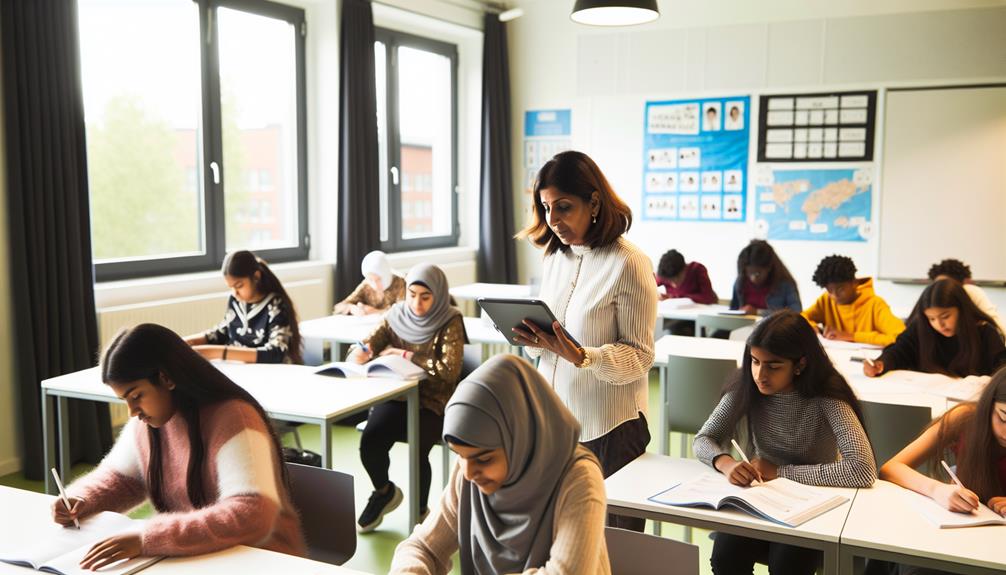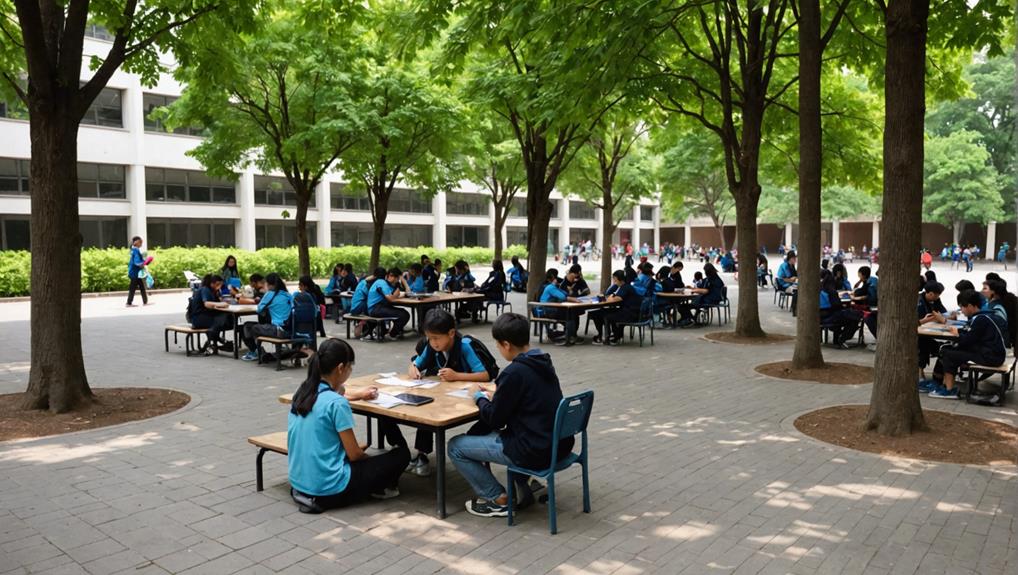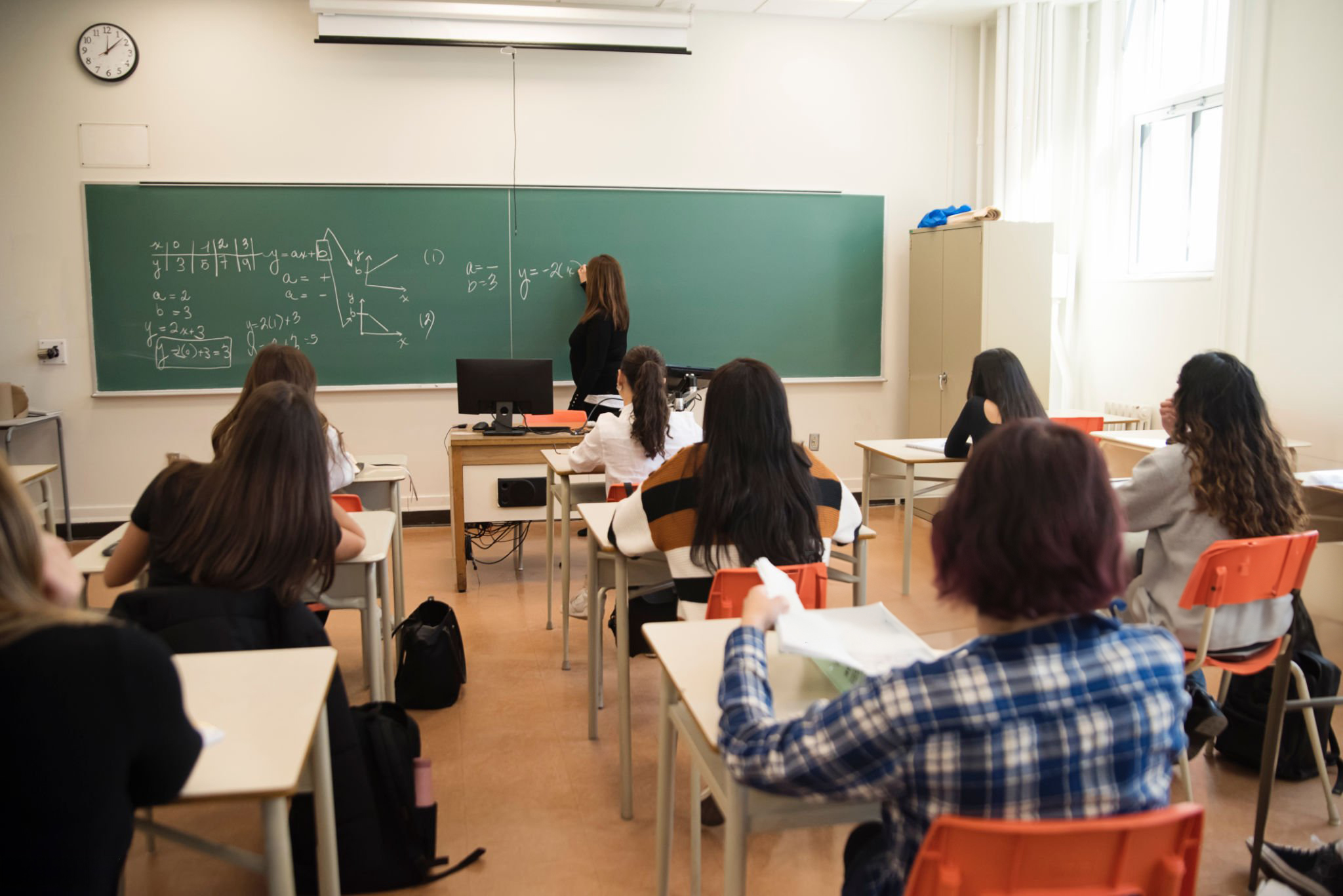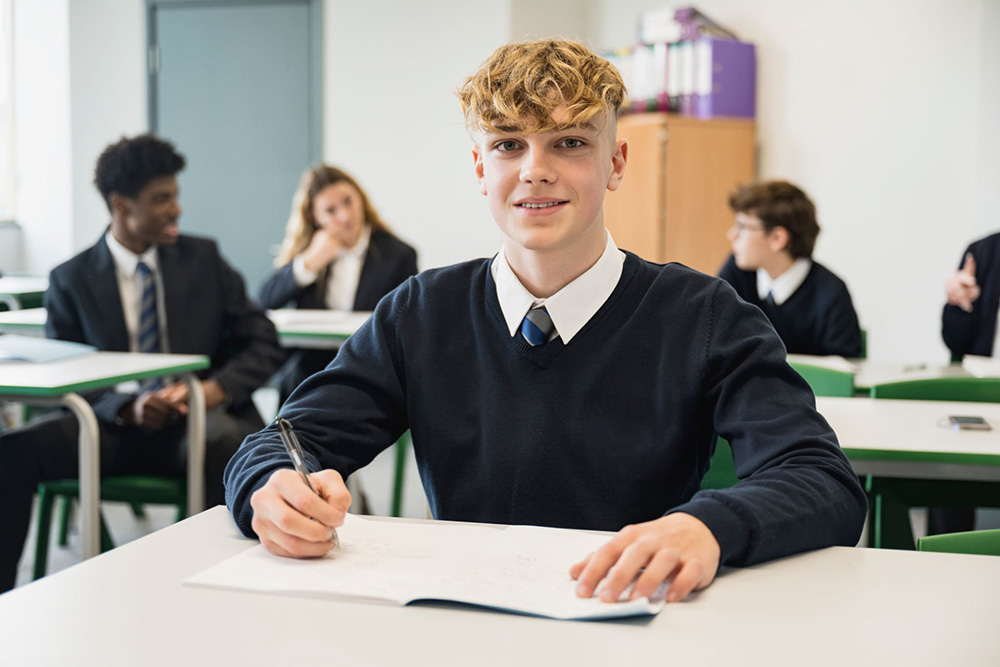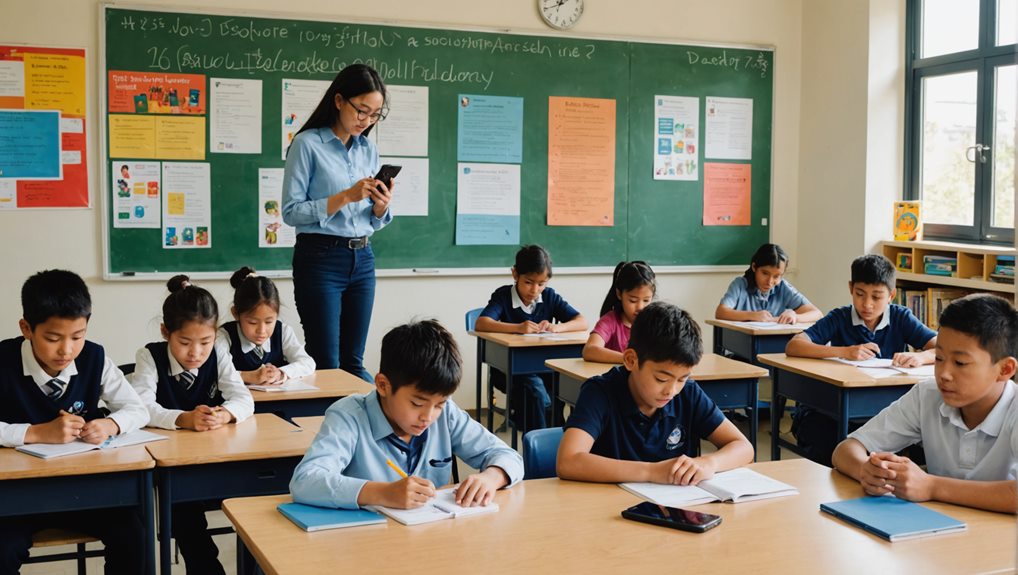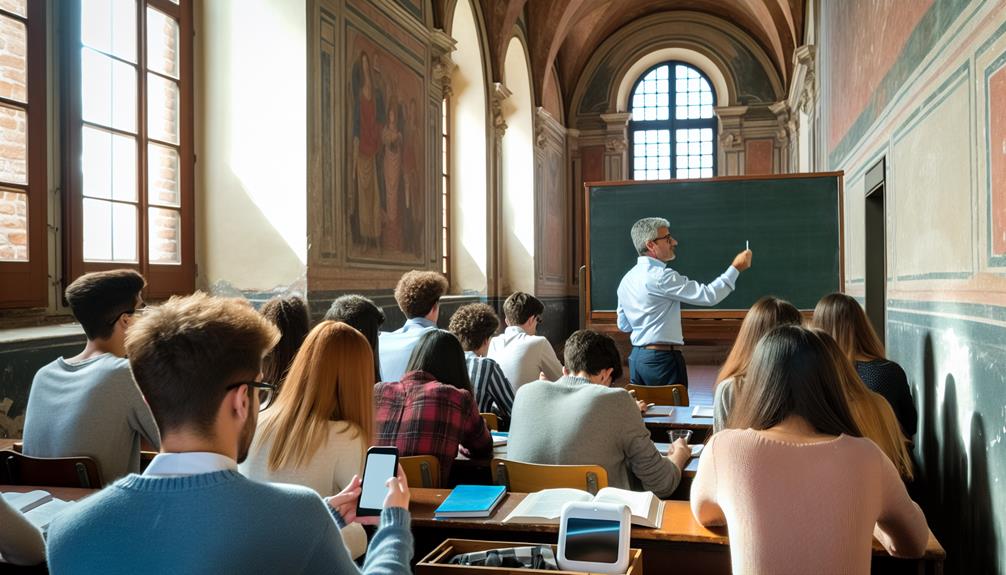The ongoing debate surrounding mobile phone use in Finnish classrooms has reached a critical juncture, as the Finnish National Agency for Education recommends banning disruptive mobile phone activities to boost student engagement and academic success. This move is buoyed by research indicating a correlation between mobile phone use and a decline in basic skills and overall academic performance. As the Ministry of Education develops legislation to impose these restrictions, the question of whether to implement a full ban or empower teachers with more authority remains contentious. How will these proposed changes impact the educational landscape in Finland?
Key Takeaways
- Finnish National Agency for Education recommends banning disruptive mobile phone use to enhance student engagement and academic performance.
- Over 80% of Finland’s 15-year-olds reported digital distractions during math classes, impacting academic scores.
- Tampere and Helsinki have implemented bans on disruptive mobile phone use in junior high schools.
- The Finnish Ministry of Education is preparing legislation to either fully ban phones or grant teachers broader authority on mobile use.
- Public opinion in Finland strongly supports restricting non-educational mobile phone use in schools to reduce technological distractions.
The Proposal to Ban Mobile Phones in Finland
In light of growing concerns about the impact of mobile phones on student learning and behavior, the Finnish National Agency for Education has taken a decisive step by recommending that schools prohibit the disruptive use of these devices during classes and restrict their usage during breaks. This proposal aims to enhance student engagement and improve academic performance by minimizing classroom distractions. The decision has sparked a nationwide debate on how to effectively manage mobile phone use in educational settings.
By curbing the presence of mobile phones, the initiative seeks to foster a focused learning environment, thereby promoting better concentration and more structured lessons. Additionally, it aims to enhance social interaction among students, offering a technology balance that encourages face-to-face communication during breaks. This balance is essential in reducing the risk of harassment and creating a more inclusive school culture.
The Ministry of Education is preparing legislation to enforce these recommendations, though it remains uncertain whether a full ban or granting teachers enhanced authority will be enacted.
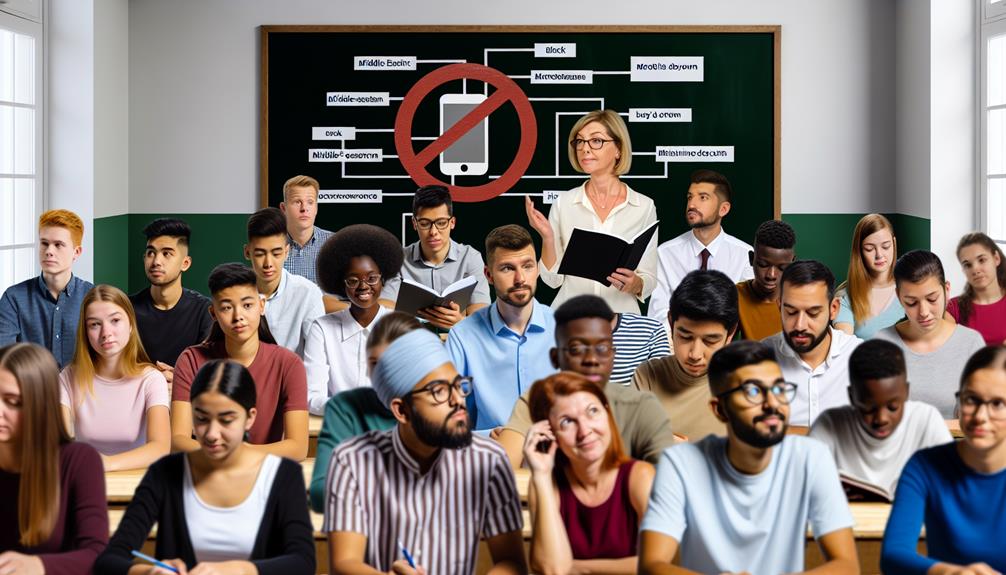
Reasons Behind the Push for a Mobile Phone Ban
The increasing disruption caused by mobile phones in both primary and secondary schools has prompted a significant push for their ban, reflecting mounting concerns over their impact on student learning and behavior. Research indicates that increasing mobile phone use correlates with a decline in basic skills and academic performance among children and young people. More than 80% of Finland’s 15-year-olds reported digital distractions during math classes in the 2022 PISA study, highlighting the pervasive nature of student distractions.
| Factors | Impact on Learning | Evidence |
|---|---|---|
| Mobile phone distractions | Cognitive capacity | Reduced cognitive function with nearby phones |
| Academic performance | Decline in scores | Lowest-ever PISA scores in math, science, reading |
| Student well-being | Behavioral issues | Increase in depression and anxiety |
| Classroom environment | Structured lessons | Teachers report enhanced concentration |
| Digital devices | Student distractions | Over 80% distracted in math class |
To address these challenges, locking phone pouches, such as those offered by PhoneLocker, can help mitigate these distractions, allowing students to focus on their studies without the temptation of constant connectivity. The Finnish government’s initiative aims to curb these adverse effects and enhance student well-being by creating a focused learning environment. With the decline in Finland’s PISA scores, the Ministry of Education is preparing legislation to limit mobile phone use in schools. This move is supported by stakeholders who emphasize the necessity of uniform rules to improve academic performance and cognitive capacity while ensuring the holistic development of students.
Examples of Implementation
Tampere’s initiative to implement a mobile phone ban in schools this fall semester is a decisive step towards fostering a focused learning environment. By prohibiting phones in junior high school classrooms from grades six to nine, Tampere aims to mitigate classroom distractions and enhance student engagement. This policy, influenced by positive feedback from prior experiments, underscores the necessity of parental involvement in reinforcing the ban outside school hours to combat technology addiction.
In Helsinki, a similar approach is being adopted across primary, vocational, and upper-secondary schools. The new rules mandate prohibiting disruptive smartphone use within school codes of conduct, empowering teachers to confiscate devices that violate these guidelines. In such scenarios, products like PhoneLocker’s phone-locking pouches offer a practical solution. These pouches allow students to keep their phones on hand while ensuring they remain inaccessible during lessons, thus supporting the schools’ efforts to minimize distractions.
The Finnish National Agency for Education’s recommendations align with these local initiatives, advocating for restrictions on mobile phone use not only during classes but also during breaks. This holistic approach aims to integrate new habits into the school culture, fostering an environment conducive to learning. As these examples illustrate, the strategic implementation of mobile phone bans addresses both immediate classroom distractions and broader issues such as technology addiction, ultimately aiming to improve educational outcomes.
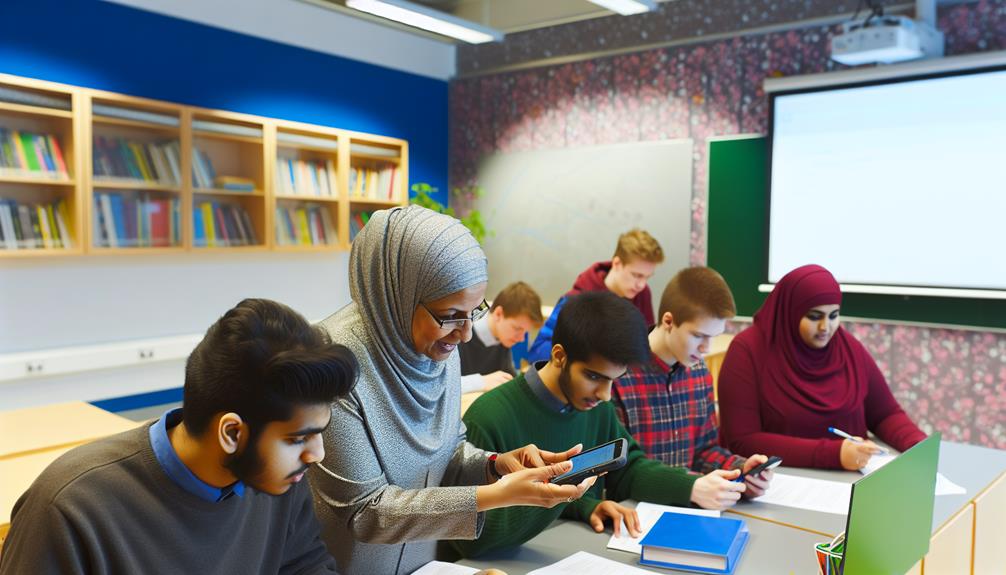
Government and Public Response
As municipalities like Tampere and Helsinki take proactive steps to implement mobile phone bans in schools, the Finnish government is also gearing up to address this issue on a national scale. The Ministry of Education is preparing legislation to enforce restrictions, although it remains uncertain whether a full ban will be enacted or if teachers will be granted broader authority to manage phone use.
Public support for these measures is overwhelming, with 85% of people backing restrictions on non-educational phone use in schools. This reflects a widespread belief that minimizing distractions could help address the ongoing decline in student performance.
A petition advocating for stricter rules has gathered over 30,000 signatures, indicating that many in Finland see the need for decisive action to preserve the quality of education in a digital age. The push for regulation is not without controversy, however. There are concerns about how a blanket ban might conflict with students’ rights, particularly regarding personal property and freedom of expression.
Legal and Ethical Considerations
Maneuvering the legal and ethical dimensions of implementing a mobile phone ban in Finnish schools presents a complex challenge. The Finnish National Agency for Education (EDUFI) strongly suggests regulating mobile phone use during lessons to enhance educational benefits and reduce disruptions. However, enforcing a full-day ban faces several obstacles, primarily due to:
Student rights: Finnish law protects students’ rights to property and freedom of expression, making it illegal to completely prohibit mobile phone use throughout the school day. Using tools like phone pouches can help schools manage phone use without infringing on these rights.
Privacy concerns: Any regulation must carefully consider students’ privacy, ensuring that personal data is not misused or monitored without consent.
Enforcement challenges: Teachers and administrators face difficulties in uniformly enforcing any mobile phone regulations without imposing unreasonable additional burdens.
Parent involvement is essential for successful implementation. Engaging parents in understanding the educational benefits and supporting school policies can help mitigate resistance and guarantee a cooperative approach.
Moreover, clear and consistent guidelines are necessary to balance the need for a focused learning environment with respecting students’ rights. As the Ministry of Education prepares legislation, it remains to be seen whether the approach will lean towards a full ban or granting teachers more authority to manage disruptions effectively.
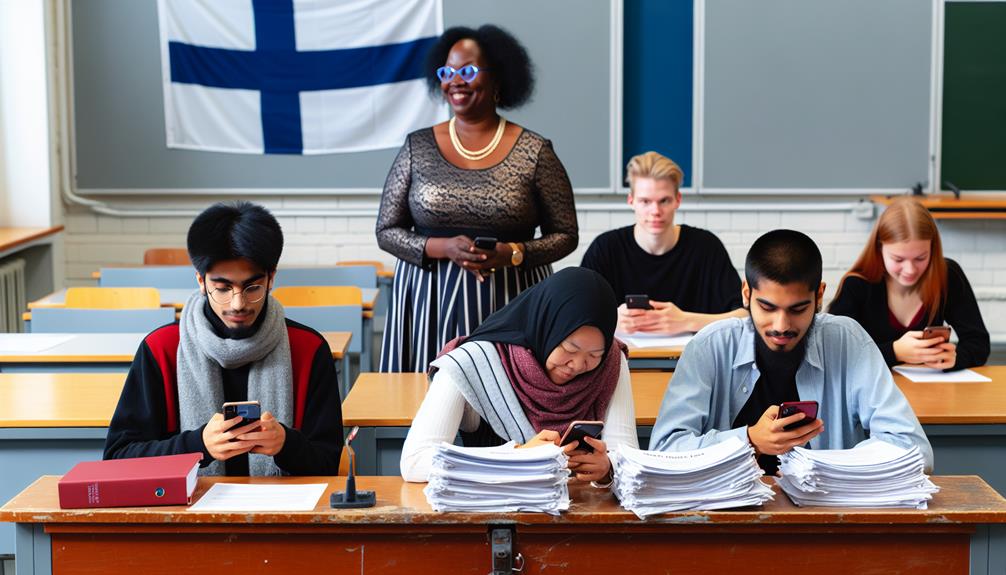
Comparison with Other European Countries
Traversing the legal and ethical dimensions of implementing a mobile phone ban in Finnish schools presents a complex challenge. When comparing Finland’s approach to other European countries, it becomes evident that policy effectiveness and student engagement vary noticeably. Italy has enacted a total ban, requiring students to surrender their devices at the start of the day. This approach aims to eliminate technological distractions entirely but necessitates robust parental involvement to make sure compliance.
France, since 2018, has prohibited mobile phone use in schools, a move designed to bolster academic performance by minimizing distractions. French policy has garnered mixed reactions, with some praising its clarity and others questioning its impact on student engagement.
Germany, particularly Bavaria, showcases a mixed approach. Initially stringent, Bavaria recently relaxed its ban to allow limited use, recognizing the nuanced role of technology in modern education. This adaptation aims to balance reducing distractions while still integrating beneficial digital tools.
| Country | Approach |
|---|---|
| Italy | Total Ban |
| France | Ban Since 2018 |
| Germany | Mixed Approach |
These varied policies underscore the significance of adapting strategies to local contexts. As Finland moves forward, considering the successes and challenges of these nations will be vital in crafting an effective, balanced approach to mobile phone use in schools.
Frequently Asked Questions
How Will Mobile Phone Bans Impact Students’ Social Interactions During School Hours?
Banning mobile phones during school hours could enhance academic focus and classroom engagement, while potentially hindering peer communication. However, it may foster improved social skills and emotional development, contributing to a more conducive learning environment.
What Are the Potential Benefits of Allowing Limited Mobile Phone Use in Classrooms?
How can limited mobile phone use enhance classroom engagement? By promoting academic focus, strengthening communication skills, and optimizing resource utilization, integrating technology thoughtfully can enrich the learning experience, balancing modern tools with traditional educational methods.
Are There Any Alternative Strategies to Manage Mobile Phone Distractions Without a Full Ban?
Alternative strategies include establishing clear classroom guidelines, integrating technology responsibly, fostering student engagement through interactive activities, utilizing peer monitoring systems, and ensuring diligent teacher supervision to minimize mobile phone distractions without implementing a full ban.
How Will Students Access Digital Learning Tools if Mobile Phones Are Restricted?
To guarantee students can access digital tools while managing distractions, schools should provide alternative devices, such as tablets or laptops, during lessons. This approach balances educational benefits and social interactions, with parental support playing an essential role.
What Role Do Parents Play in Supporting the Mobile Phone Ban in Schools?
Parents are the backbone of policy enforcement, ensuring student education thrives. Their involvement through effective communication strategies and community support is essential for fostering a conducive learning environment, reinforcing the school’s mobile phone ban.
Conclusion
The proposed ban on mobile phones in Finnish classrooms, intended to enhance student engagement and academic performance, ironically reflects society’s increasing dependency on technology. This initiative, driven by concerns over declining basic skills, aims to curb distractions in an era where digital devices are ubiquitous. While the Ministry of Education deliberates on the appropriate legislative measures, schools can explore balanced solutions, such as using phone-locking pouches, to manage phone use effectively without fully eliminating access to these modern learning tools.


